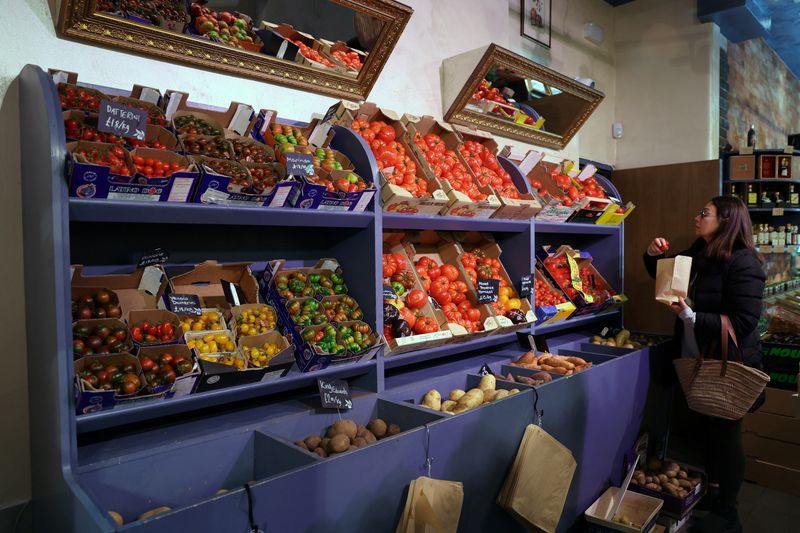LONDON (Reuters) - Prices in British shops fell at the fastest pace in more than three years in September, the British Retail Consortium said on Tuesday, adding to signs that the inflation squeeze on consumers has faded.
Annual shop price deflation dropped to 0.6% in the 12 months to September, the BRC said, its weakest since August 2021 and slower than the 0.3% fall in the month before.
It was the seventh time in nine months that the pace of price growth has weakened.
Non-food deflation fell to 2.1%, a down from a drop of 1.5% in August.
"Easing price inflation will certainly be welcomed by consumers, but ongoing geopolitical tensions, climate change, and government-imposed regulatory costs could all reverse this trend," BRC boss Helen Dickinson, said.
Food price inflation rose to 2.3% from 2.0%, an increase Dickinson attributed in part to poor harvests in key farming areas which led to higher prices for cooking oil and sugar.
Official figures showed consumer price inflation held at 2.2% for the second month in a row in August, well below a 41-year high of 11.1% in October 2022.
But services inflation, a closely watched indicator of underlying inflation pressure by the Bank of England, edged up.
The central bank is expected to cut borrowing costs in November after holding its key interest rate at 5% in September.

BoE policymaker Megan Green last month said she saw a risk that weak consumer demand could rebound by more than the central bank has anticipated.
Consumer surveys have shown many households remain cautious about potential tax hikes in finance minister's Rachel Reeve's first annual budget later this month.